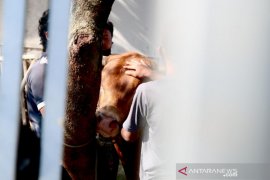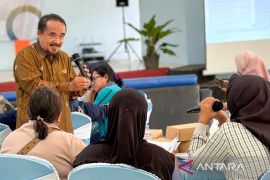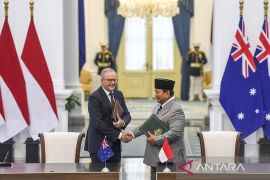The tradition was carried out by the Indonesia Institute of Islamic Dawah (LDII) - Bali, which slaughtered 115 cows and 244 goats and shared their meat with other religious communities.
"We share it evenly. According to the Quran, we need to share the meat with people who ask or do not ask for (the meat). We start sharing it with the closest communities first and then other demands," LDII Bali Vice Chairperson Harlan said.
Of the 10 thousand packages of sacrificial meat targeted for distribution, around 400 packages were provided to residents living around the LDII Bali office in Padangsambian, West Denpasar.
"This is inter-religious, we do not just target Muslims, but also others, especially around the LDII office," he informed.
According to Harlan, the distribution of sacrificial meat to communities living around the office was carried out based on data and inputs.
The ngejot tradition itself is not new: LDII Bali has been following it since the 2000s and it was even popular at one point in 2012.
Ngejot is based on the concept of brotherhood, which upholds inter-community synergy that is built not only on Eid al-Adha, but also during other religious ceremonies.
LDII Bali expressed the hope that the activity would help maintain communal harmony so that local needs and difficulties can be solved together.
After the slaughter of sacrificial animals, the organizers immediately distributed woven packages containing about 1.5 kilograms of meat each.
Udayana University Veterinary student Gheasella said that people need to process the sacrificial meat properly.
"Don't wash the meat but cook it directly. Because if you wash it, the bacteria will spread, which can lead to zoonoses. It is better to put it in a pot and cook for 30 minutes and only after that, it can be consumed," she added.
Related news: Eid al-Adha serves as moment to rise after pandemic: Minister
Related news: West Sumatra distributes 83 sacrificial animals to remote villages
Related news: Vice President conveys Eid al-Adha greetings to Muslims
Translator: Putu S, Kenzu
Editor: Sri Haryati
Copyright © ANTARA 2023












